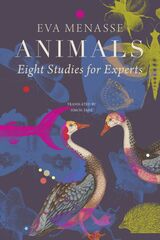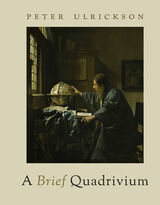
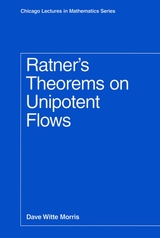
A collection of lecture notes aimed at graduate students, the first four chapters of Ratner's Theorems on Unipotent Flows can be read independently. The first chapter, intended for a fairly general audience, provides an introduction with examples that illustrate the theorems, some of their applications, and the main ideas involved in the proof. In the following chapters, Morris introduces entropy, ergodic theory, and the theory of algebraic groups. The book concludes with a proof of the measure-theoretic version of Ratner's Theorem. With new material that has never before been published in book form, Ratner's Theorems on Unipotent Flows helps bring these important theorems to a broader mathematical readership.
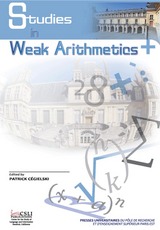
The field of weak arithmetics is an application of logical methods to number theory that was developed by mathematicians, philosophers, and theoretical computer scientists. In this volume, after a general presentation of weak arithmetics, the following topics are studied: the properties of integers of a real closed field equipped with exponentiation; conservation results for the induction schema restricted to first-order formulas with a finite number of alternations of quantifiers; a survey on a class of tools called pebble games; the fact that the reals e and pi have approximations expressed by first-order formulas using bounded quantifiers; properties of infinite pictures depending on the universe of sets used; a language that simulates in a sufficiently nice manner all algorithms of a certain restricted class; the logical complexity of the axiom of infinity in some variants of set theory without the axiom of foundation; and the complexity to determine whether a trace is included in another one.
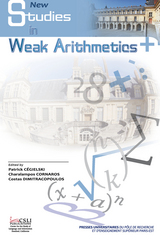
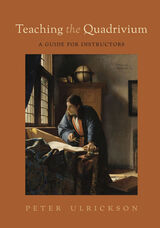
READERS
Browse our collection.
PUBLISHERS
See BiblioVault's publisher services.
STUDENT SERVICES
Files for college accessibility offices.
UChicago Accessibility Resources
home | accessibility | search | about | contact us
BiblioVault ® 2001 - 2024
The University of Chicago Press






